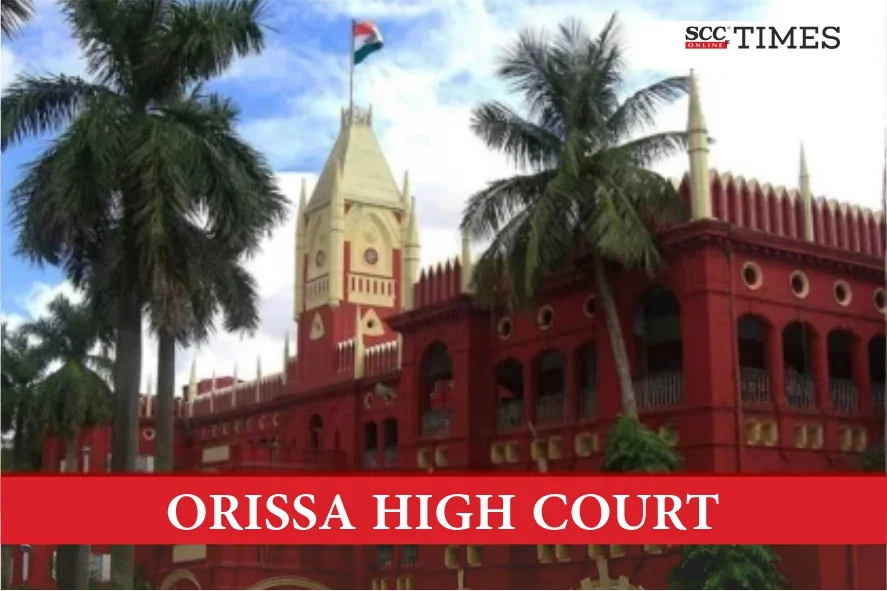Orissa High Court: In a batch of bail applications filed by the accused persons under Section 439 of the Code of Criminal Procedure, 1973 (‘CrPC’) seeking the grant of bail in cases arising out of the First Information Report(‘FIR’) lodged under Sections 420, 467, 468, 471 and 120-B of the Penal Code, 1860 (‘IPC’) read with Section 4, 5 and 6 of the Price Chits and Money Circulation Schemes (Banning) Act, 1978 (‘PCMCS Act’) and Section 6 of the Odisha Protection of Interests of Depositors Act, 2011 (‘OPID Act’), Sashikanta Mishra*, J. allowed the bail application on certain terms and conditions for absence of a proximal nexus between the accused persons and the alleged offences, as there was no evidence to show that they had convinced members of the general public to invest money on promise of high returns rather the investors acted on their own volition. The Court held that Cryptocurrency is not ‘money’ within the meaning of the PCMCS Act’.
BackgroundAn FIR was lodged by the Inspector of Police on 28-07-2023 based on an inquiry against the accused persons. They were alleged to be involved in a Ponzi Scheme related to cryptocurrency investments. The scheme revolved around promoting a cryptocurrency called STA Token, purportedly launched by a company named STA (Solar Techno Alliance) based in the Netherlands. The accused, who allegedly held the positions of district head and country head for STA, are said to have targeted individuals to invest in STA Tokens. They allegedly recruited investors by building a network of members who were encouraged to recruit further investors. The investigation revealed that one of the accused initially invested Rs. 3,000 but accumulated over 18 crores by enrolling several individuals. Additionally, STA offices were reportedly opened in various districts, with over 1,000 members enrolled in each district. STA Tokens were allegedly used as a medium of exchange/ currency in the Bhadrak market to buy daily use items. It was alleged that the modus operandi adopted, the transaction was nothing but a Ponzi Scheme, since virtual currency cannot be used as a legal tender, the use of STA token in the Indian market is contrary to law.
Following the FIR, the police conducted investigations, arrested the accused persons, froze their bank accounts, and seized relevant documents. After completing the investigation, a preliminary chargesheet was submitted.
Analysis and Decision
The Court perused and examined the statements of witnesses who were active members of the STA and noted that none of the statements contained that any payments was made directly to the accused persons nor were there any promises from the accused persons of high returns on such investments. The Court said that it was evident from a reading of the statements that the several persons (the witnesses) were asked to enroll new members, in order to enhance the earnings of the STA. The Court also noted that the investments made by new members were secured in trust wallets which were accessible to the investor only after twenty months and if they successfully add any more members, they would be paid commission, bonus etc. The Court said that the members of the public who participated in trading in cryptocurrency appear to have done so of their own free will and clarified that the decision to invest was influenced by the affluent lifestyle of the accused persons and his associates which led individuals to act on their own accord. The Court added that there was nothing as to any promise for higher returns on the investments, as usually happens in case of a Ponzi Scheme.
Furthermore, the Court perused Section 2(b) of the PCMCS Act which defines ‘money’ as “including a cheque, postal order, demand draft, telegraphic transfer or money order” and said that the STA Token did not qualify as ‘money’ under Section 2(b) of the PCMCS Act as it is a cryptocurrency stored in trust wallets and is purchased via applications from Google Play Store and Binance Crypto Exchange. Consequently, the offences under Sections 4, 5, and 6 of the PCMCS Act were not made out.
The Court relied on Internet & Mobile Assn. of India v. RBI, (2020) 10 SCC 274, wherein the Supreme Court struck down the ban imposed by RBI on the use of digital currency, thus, making virtual currencies legitimate modes of payment in the exchange of goods and services. Consequently, the Court said that mere dealing in crypto currency cannot be treated as illegal in any manner and hence, the offencee under Section 6 of the OPID Act was also deemed unsubstantiated.
Regarding the IPC offences, the Court said that that the accused persons only attempted to convince the public to trade in cryptocurrency STA Token without fraudulent intent to induce property transfer and there was no manipulation of investments that remained in individual Trust Wallets. Therefore, no deceptive practices akin to those typically seen in Ponzi schemes were evident, and the charge under Section 420 of the IPC did not stand. Moreover, there is no indication of any forgery or manipulation of documents, records, or any form of deceitful interference by the petitioners. The Court added that the accused persons may have earned commission/bonus from the company but that by itself cannot be considered as dishonest earning.
Hence, the Court said that the detention of the accused persons was unjustified and allowed the bail applications under specified terms and conditions.
[Nirod Kumar Das v. State of Odisha, 2024 SCC OnLine Ori 1375, Decided on 01-05-2024]
*Judgment Authored by: Justice Sashikanta Mishra
Advocates who appeared in this case :
For the Appellant: Senior Advocate Kanungo, Advocate P.K. Deo
For the Respondent: Counsel for OPID Advocate B. Bhuyan









